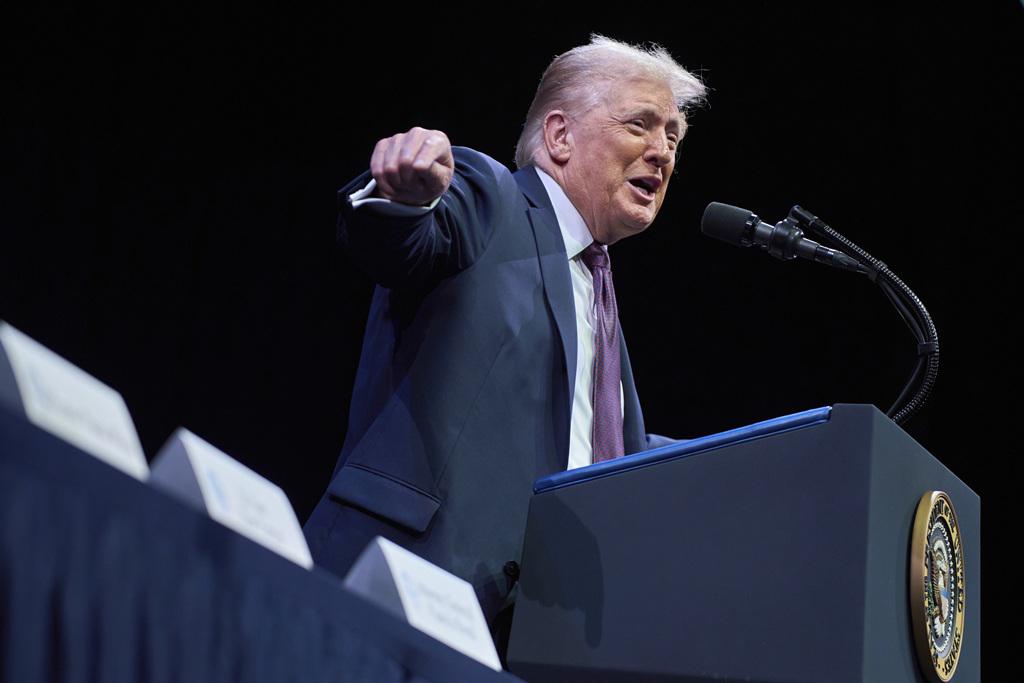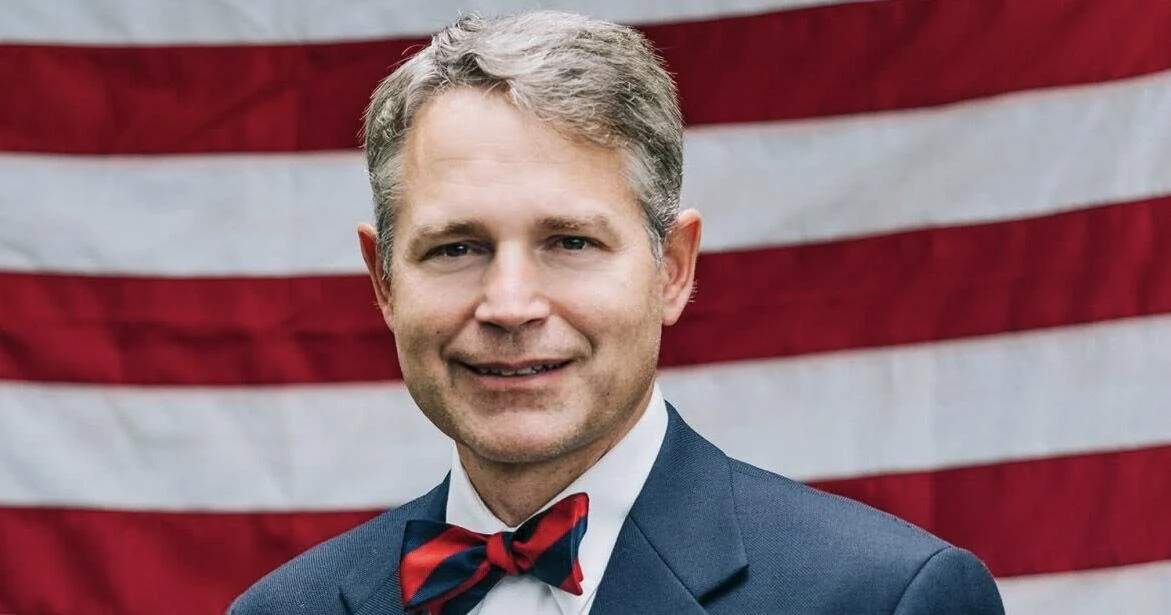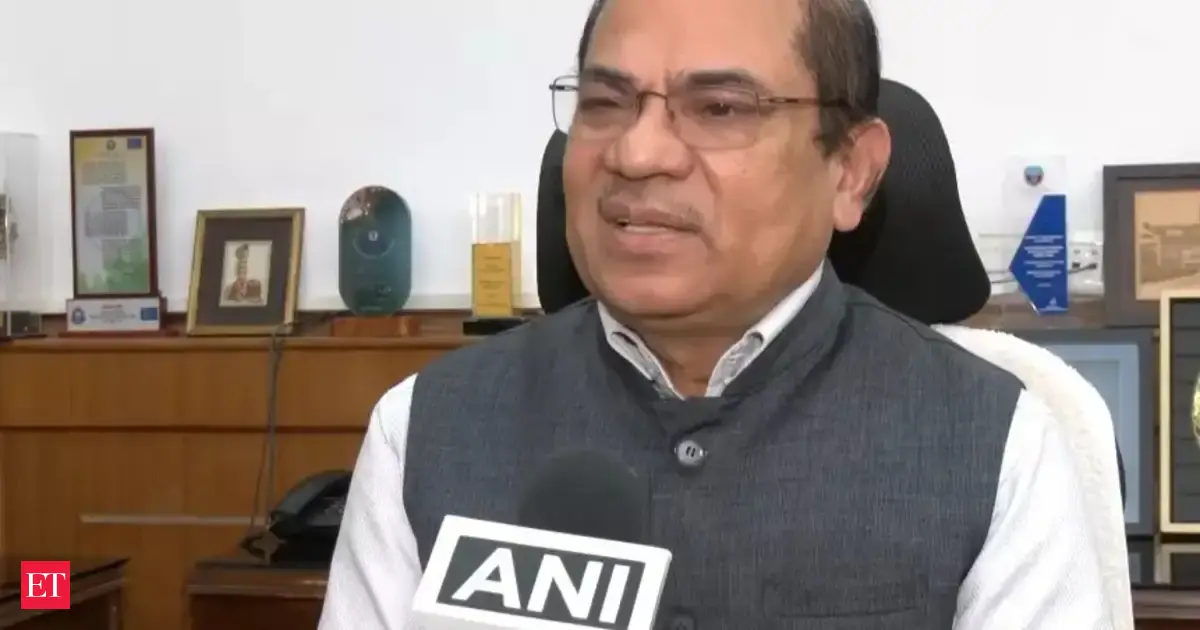By KJ Boyle
Copyright prospect

The Revolving Door Project, a Prospect partner, scrutinizes the executive branch and presidential power. Follow them at therevolvingdoorproject.org.
Ever since Donald Trump’s return to the Oval Office this past January, his administration has feverishly waged a multifront war on the administrative state and the workers who comprise it. DOGE, of course, was the highest-profile effort to dismantle government capacity, with the unilateral cancellation of billions in contracts and grants and mass layoffs and induced retirements of tens of thousands of federal workers. Though DOGE’s chain saw has since sputtered amid departing leaders and a rapidly toxifying brand, the administration continued with a simple but effective tactic to continue to stall good government—removal of agency leadership. Due in large part to Trump terminations, at least eight independent agencies now lack a quorum—the minimum number of commissioners required for an agency to carry out key functions such as conducting investigations, issuing or repealing regulations, and adjudicating cases before an agency board.
As a direct result of Trump terminations—the legality of which is being adjudicated by the courts—the Federal Election Commission (FEC), the Equal Employment Opportunity Commission (EEOC), the National Labor Relations Board (NLRB), the Merit Systems Protection Board (MSPB), the Privacy and Civil Liberties Oversight Board (PCLOB), the Consumer Product Safety Commission (CPSC), and the National Credit Union Administration (NCUA) are all without a quorum.
Some of these agencies may not be household names, but they play crucial roles in addressing a wide range of issues, including discrimination in hiring, union recognition, election integrity, and more. It’s probably not a coincidence that their tasks involve stopping corporations and billionaires from harming the public—selling risky toys, buying politicians, cutting corners on safety, and so on. In other words, the amoral rich benefit if these entities do nothing.
Trump’s Pending Nominees
To be clear, an occasional lack of quorum has been common historically, but Trump has taken it much further. Take for example, the three-person Occupational Safety and Health Review Commission (OSHRC), which has been without a quorum since 2023. OSHRC is responsible for handling appeals of citations and penalties issued by the Occupational Safety and Health Administration. Though President Biden nominated two commissioners to fill out the board, the then-Democratic-controlled Senate failed to hold a full vote after they were advanced by the Health, Education, Labor and Pensions (HELP) Committee. Mind you, the 118th U.S. Senate adjourned on December 20th of 2024, two weeks before it expired—then-Majority Leader Schumer and his caucus could have worked much harder.
The commission has floundered ever since, with Chair Cynthia Attwood’s term expiring in April, leaving all three positions vacant. OSHRC now has 31 cases pending commission review, the oldest of which was directed to the commission on October 21, 2021, and concerning citations originally issued in 2018.
This backlog will not be alleviated anytime soon. Thus far, President Trump has only nominated Jonathan Snare as a commissioner. If confirmed, Snare would be the only person to sit on the commission, which needs at least two people to establish a quorum. Even then, the Senate doesn’t seem to be in any rush to confirm him. The Senate does have limited floor time and a long backlog of nominees awaiting a vote, and Democrats are successfully gumming up the works to further slow the process, but Senate Majority Leader John Thune (R-SD) could prioritize agency leaders to expedite the return of a quorum. That doesn’t seem to be the case. Snare was first nominated in March, sent to the full Senate by the HELP Committee in July, and still has no date for a full vote.
To be clear, Snare won’t be a strong voice standing up for the health and safety of workers. He’s a former partner at Morgan Lewis, a BigLaw firm that has challenged the constitutionality of OSHRC, as well as other independent agencies. Even so, the lack of any progress to even get these cases heard leaves businesses and workers in limbo while also undermining OSHA’s investigatory and enforcement authority—that is, to the extent that OSHA is still operating at all.
Snare is not the only one languishing in the Senate. Trump nominated Brittany Panuccio to the EEOC, Scott Mayer and James Murphy to the NLRB, and James Woodruff to the MSPB. Unlike Snare’s nomination, these appointees would restore a quorum at their respective agencies, but they are similarly stuck waiting for a full Senate vote.
Woodruff and Panuccio advanced out of committee in June and July, respectively, but neither is scheduled for a full vote. Trump nominated Mayer and Murphy in July, but they’ve yet to even have a hearing in the HELP Committee. Democrats and Republican HELP Chair Josh Hawley opposed Trump’s NLRB general counsel nominee, bringing her nomination to a halt, so the fate of Mayer and Murphy remains to be seen. Given the already sluggish pace of the Senate nomination process, and the fact that the term of the last remaining NLRB board member ends in August 2026, the NLRB may be without a quorum for the foreseeable future.
In the meantime, the authorities of these agencies are greatly diminished. The EEOC, which enforces federal civil rights law related to employment, can still file lawsuits and continue investigations, but it likely cannot commence new investigations that involve systemic discrimination or major expenditures of funds, nor can it issue new rules and guidance. The one-person NLRB cannot adjudicate appeals of administrative law judge decisions, stalling such cases, or process requests for review of union representation cases. At the MSPB—which is particularly busy after DOGE’s destruction, as it adjudicates federal employees’ appeals of disciplinary actions—the lack of a quorum prevents the board from issuing final decisions when a party petitions for a review of an administrative judge’s decision.
Agencies Left Vacant
Compared to the other agencies lacking a quorum, those with nominees pending are the lucky ones. The FEC, PCLOB, CPSC, and NCUA have all lost a quorum due to Trump’s terminations of their members, but here he has not nominated any replacements. To make matters worse, the Supreme Court has all but guaranteed Trump’s firings will stand, so lawsuits will not be able to restore a quorum either.
The PCLOB, which is meant to oversee and advise the government to ensure that privacy and civil liberties are protected throughout counterterrorism efforts, had three of its four members terminated by Trump in January. Trump then terminated two Democratic members of the National Credit Union Administration in April and three Democratic members of the Consumer Protection Safety Commission in May. In each case, the terminations were ruled by lower courts to be illegal, but the government successfully moved to stay those decisions on appeal, thanks to the Supreme Court’s overturning of precedent in similar cases concerning firings at the NLRB and MSPB.
The Supreme Court has, in effect, allowed the president to halt the most important functions of every independent agency—at least, those with a quorum requirement—despite their congressional mandates and regardless of federal protections for agency officers.
The FEC has similarly been left without a quorum thanks to one Trump termination—denounced as illegal but not challenged in court—and two Republican resignations. For all his bluster about election fraud during his political career, Trump’s firing and subsequent disinterest in submitting new nominees is hampering the function of the one agency that is actually committed to a role in ensuring free and fair elections. Now, pending enforcement cases are piling up, and the agency cannot conduct audits, issue fines, or publish new rules. It’s a concerning situation as we get closer and closer to the 2026 primary and general elections, not to mention any special congressional elections along the way.
It remains to be seen which of these agencies Trump and his Republican allies choose to keep paralyzed, but the Supreme Court has made it clear: Any independent agency could be next. There are also outstanding legal questions separate from the legality of terminations. The NCUA’s remaining Republican commissioner is claiming to constitute a one-person quorum despite the letter of the law ostensibly directly contradicting him. Democrats have pressed the commissioner for answers, but the NCUA has stood by its one-person quorum, so it may take a legal challenge to put a stop to it.
Senate Republicans may eventually restore a quorum to agencies with pending nominees, but the damage has largely been done. Enforcement cases on a host of issues are backlogged, which has only worsened with DOGE’s decimation of staffing levels and each passing day without leadership. It will take a herculean hiring effort to restore agency capacity and catch up on these duties.
Furthermore, the agencies are functionally no longer bipartisan, as Trump summarily fired scores of Democratic members without cause, preventing any record of dissenting opinions. Thus most, if not all, of Trump’s nominees waiting in the wings will do far more harm than good if they are able to restore a quorum. Regardless, it will be a degradation of the institutions that are meant to look out for and protect the public interest. It’s only been eight months, but the administration has done lasting harm to the function and independence of these agencies, leaving the public’s safety, financial well-being, and civil rights at dire risk.



